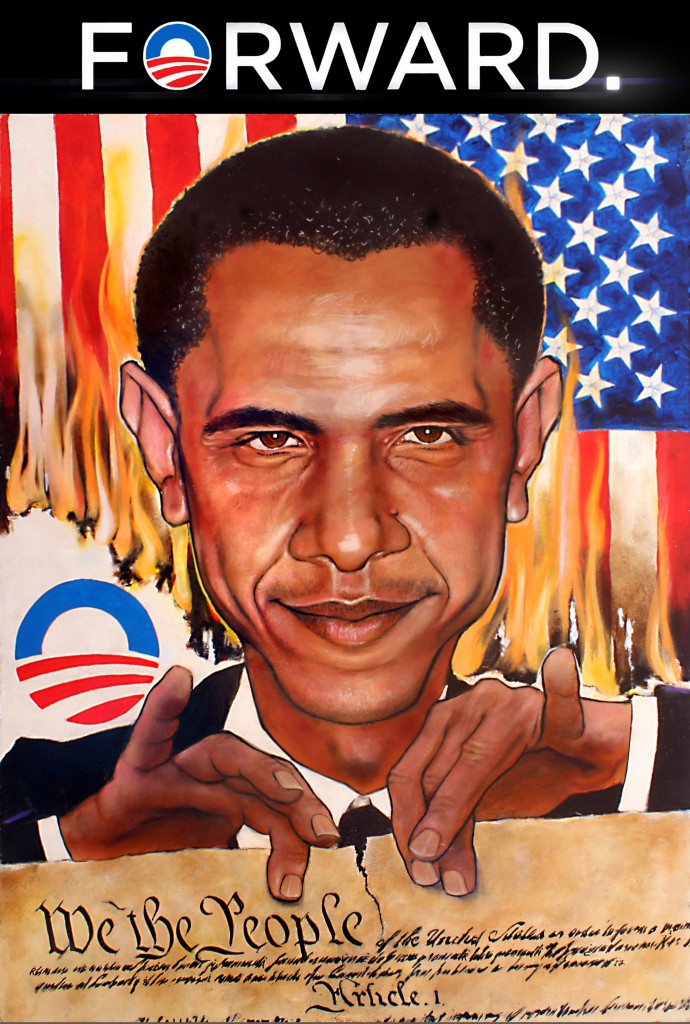WASHINGTON - Barack Obama avoided a pink slip Tuesday, defeating his Republican challenger despite a bitterly contested election that had the U.S. president's supporters fearful he was doomed to the indignity of a single term.
Victory was declared after several gut-wrenching hours that saw Obama and Mitt Romney spend election night much as they did the presidential campaign — in a neck-and-neck, topsy-turvy horse race.
His supporters in Chicago — and around the world — erupted in jubilation as soon as Obama was declared the winner. At Romney's headquarters in Boston, meantime, the mood was grim following an election believed to be well in the Republican's grasp.
Yet his success this year was in stark contrast to his historic triumph in 2008, when he became the country's first African-American president and won the White House on an inspiring message of hope and change.
In 2012, Obama's rhetoric was decidedly less soaring.
Little wonder — Americans are still struggling to recover from a devastating economic recession that took unrelenting hold of the country soon after the president took office.
Obama was no longer promising to dramatically change the toxic political culture in the U.S. capital, for example — instead, he was vowing to finish the work he'd started and urged Americans not to give up on him.
And even though he eked out victory, the election exposed bitter partisan fault lines that threaten to endure for years to come.
His triumph was the long-awaited culmination of one of the hardest-fought presidential campaigns in recent U.S. history, even though Romney appeared to still be ahead in the popular vote late Tuesday.
Under the American system, presidential candidates compete not for popular vote, but for the electoral college votes up for grabs stateside. Those votes are assigned based on a state's population and representation in Congress.
Seven states, representing 89 electoral college votes, were considered battlegrounds: Colorado, Iowa, Wisconsin, Ohio, Virginia, Florida and New Hampshire.
Nevada and North Carolina were also in play for both the president and Romney.
Romney insisted the president had failed miserably to deliver on his heady promises of 2008, assailing him in particular for his handling of America's enduring economic woes. He asserted that his own business experience would make him a better choice for Americans.Election day dawned following a $2.6 billion election campaign.
Romney, the 65-year-old former Massachusetts governor, fought until the bitter end, making last-minute campaign appearances Tuesday in Ohio and Pennsylvania even as millions of Americans were casting their ballots.
"This is a big day for big change," Romney said in Richmond Heights, Ohio, alongside his running mate, Paul Ryan.
"The country's been going in the wrong direction for the last few years; we're going to steer it back onto a course that's going to help the American people have a brighter future."
Obama, meantime, officially ended his final political campaign with an emotional appearance with his wife, Michelle, on Monday night in Iowa, where he won his first primary season contest in 2008.
The president also conducted a series of TV interviews with stations in swing states. In one of those chats, Obama recalled his victory in North Carolina in 2008, where he won by just 14,000 votes over Republican John McCain.
"Do not think that your vote will not make a difference," Obama said as he implored voters to get out to the polls.
"When we won North Carolina last time, we won it by an average of five votes per precinct, which means that everybody who is listening right now, I know you can find five people who didn't vote, who have not yet voted."
And yet Tuesday night's congressional winners and losers were every bit as important as the ultimate White House victor. Congress, after all, is more powerful than the executive branch in terms of bringing to life — or snuffing out — a president's legislative hopes and dreams.
The makeup of Congress remained relatively unchanged, with Republicans maintaining control of the House of Representatives and Democrats dominating the Senate.
That means he'll face a Republican House that's no warmer to his agenda than it has been for the past two fractious years.
Photo credit: Dave Merrick

No comments:
Post a Comment